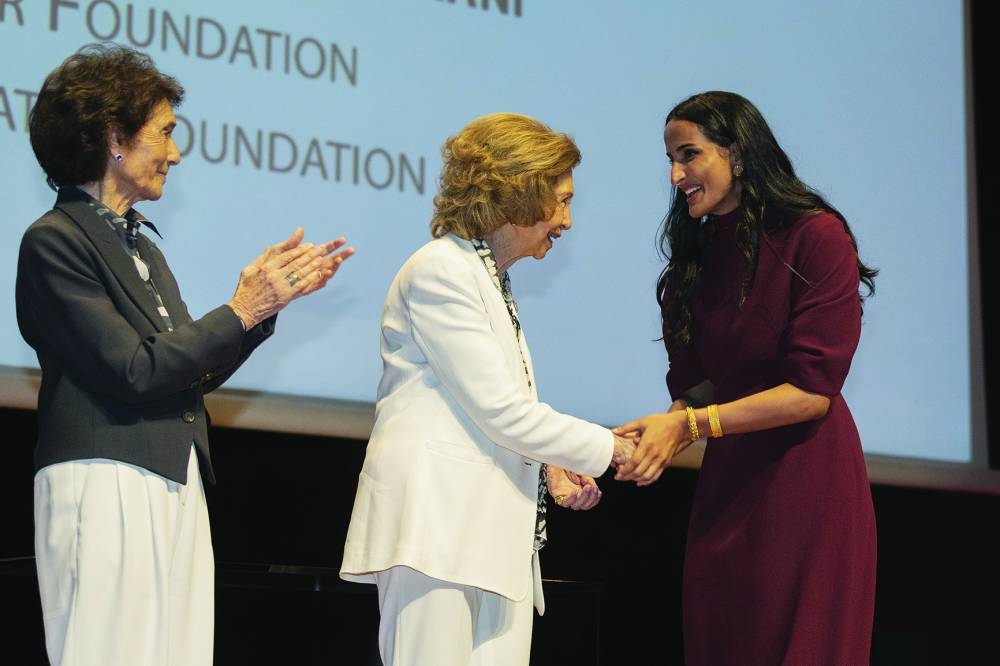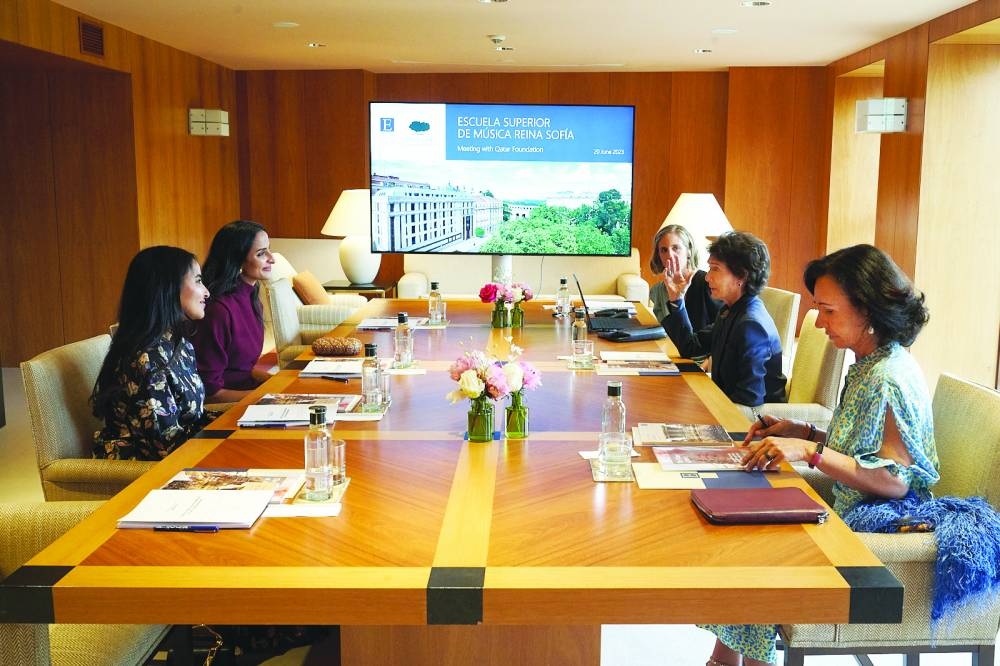New opportunities for knowledge, creativity, and cross-cultural connections will be created for students in Qatar through a collaboration between Qatar Foundation (QF) and the renowned Reina Sofía School of Music in Spain – regarded as one of the best in the world for educating young musicians.
The agreement will include masterclasses and student exchanges, while pathways for graduates of Qatar Music Academy (QMA) – a member of QF – to join the higher education programmes offered by the Madrid-based school are being explored, together with use of its learning technology through virtual reality in QF’s schools.
Reflecting the importance of promoting and expanding knowledge of Arab music, and reinforcing the interconnectedness of Arab and Islamic culture on the one hand, and Spanish culture on the other, the agreement will also lead to the establishment of a Chair of Arabic and Eastern Music at the Reina Sofía School of Music, in conjunction with QMA. QF will support the expansion of the school and be granted naming rights for its building in the Spanish capital.
QF’s commitment to nurturing young musical talent is illustrated by QMA, which educates promising musicians in the practice and theory of both Arab and Western classical music. It also builds awareness and appreciation of traditional Arab and Western music, and conducts research on the region’s musical heritage to preserve it for future generations.
Announcing the agreement in Madrid, HE Sheikha Hind bint Hamad al-Thani, Vice Chairperson and CEO of QF, said: “Music has the capacity to open windows to the world, and enhance pathways to knowledge – broadening our perspectives, and building bridges between cultures.
“At Qatar Foundation, we invest in, promote, provide access to, and educate our youth about music – and the wider world of arts – because it inspires creativity, curiosity, and understanding. The opportunities we offer for increasing the knowledge of, engagement with, and involvement in music among Qatar’s youth, and its wider community, will be significantly enhanced through this collaboration with the Reina Sofía School of Music.
“Spain and the Arab world have a shared history, and this agreement reflects both our intertwined past and the ties between us that endure to this day. We are delighted to be working with an institution whose reputation for nurturing musical talent, artistic innovation, and making the arts accessible to all is known around the world. Together, we aim to strengthen cross-cultural ties, and enrich lives, through the power of music and partnership.”
Founded in 1991, the Reina Sofía School of Music supports the artistic and personal development of young musicians, collaborating with schools and institutions around the world with the goal of improving musical education on a global scale. With 150 students of more than 30 nationalities and 850 alumni, it is also committed to bringing music closer to society, through organising hundreds of free public concerts each year and offering social impact programs in a range of fields.
The school also offers an entrepreneurship and social innovation program, where students build their critical and creative skills through developing social, artistic, technological, and environmental innovation projects.
Paloma O’Shea, founding president of the Reina Sofía School of Music, said: “I’m sure that the agreement signed today will open great opportunities for both institutions. We are truly looking forward to collaborating with Qatar Foundation on academic and artistic projects that will help grow and expand the reach of our School.”
Under the agreement, the Reina Sofía School of Music will provide an annual masterclass to QMA students, with students from both schools participating in exchange programs to expand their cross-cultural musical horizons. QF school students will participate in the Reina Sofía School of Music’s summer camp in Madrid, with the potential for a similar camp in Doha being explored.
The refurbished and expanded school building in central Madrid is expected to open by 2026, and will include a new auditorium, classrooms, and multi-purpose spaces, as well as new innovation spaces that further incorporate technology into musical education and performances, the statement added.

HE Sheikha Hind bint Hamad al-Thani with Queen Sofía of Spain as Paloma O’Shea, founding president of the Reina Sofía School of Music, looks on.

HE Sheikha Hind bint Hamad al-Thani, Vice Chairperson and CEO of QF, and Machaille Hassan al-Naimi, Executive Officer of the Vice Chairperson and CEO Office, QF, with (on right of picture) Reina Sofia School of Music's founding president Paloma O’Shea, CEO Julia Sánchez and board of trustees member Ana Botín.
